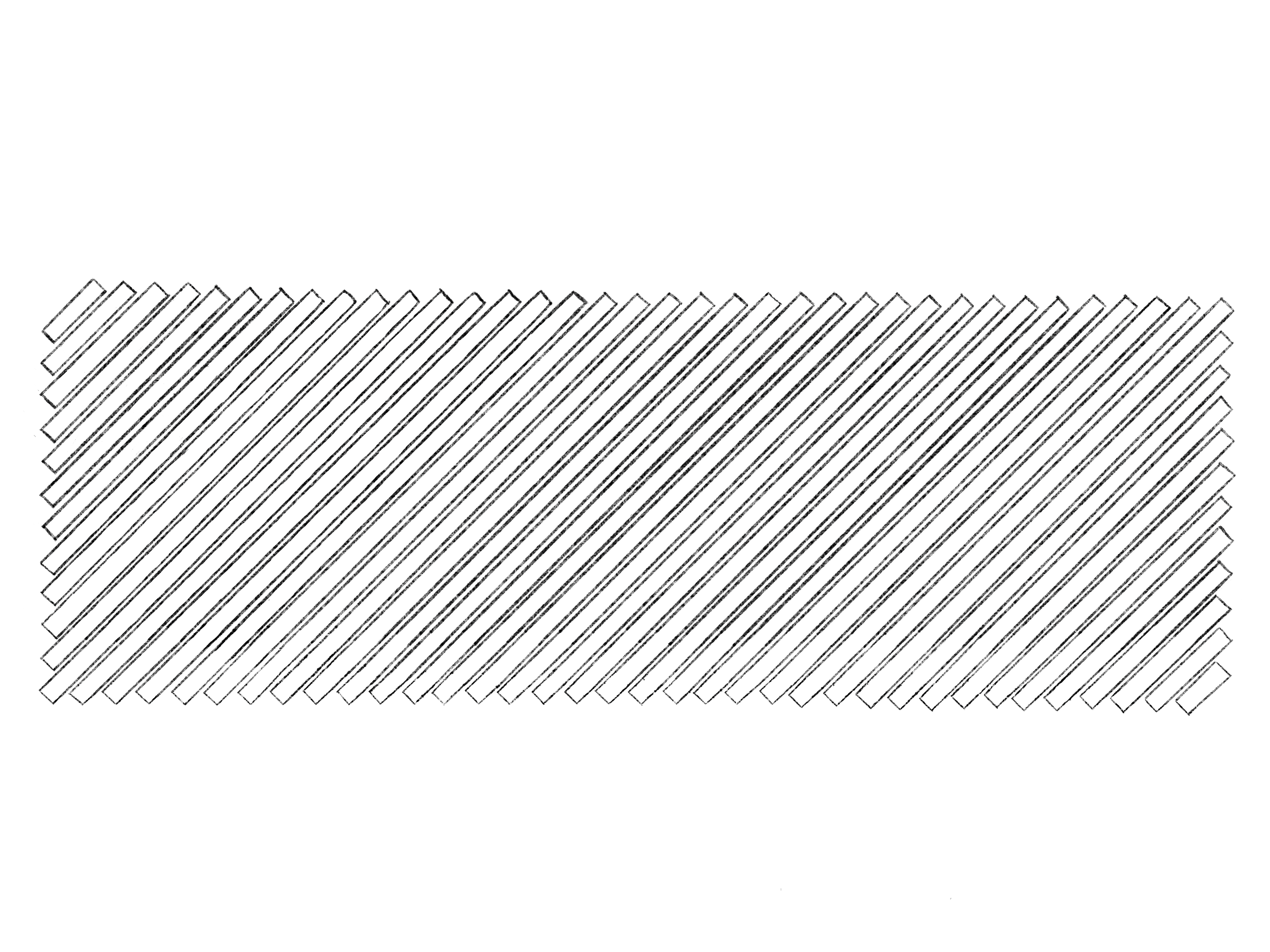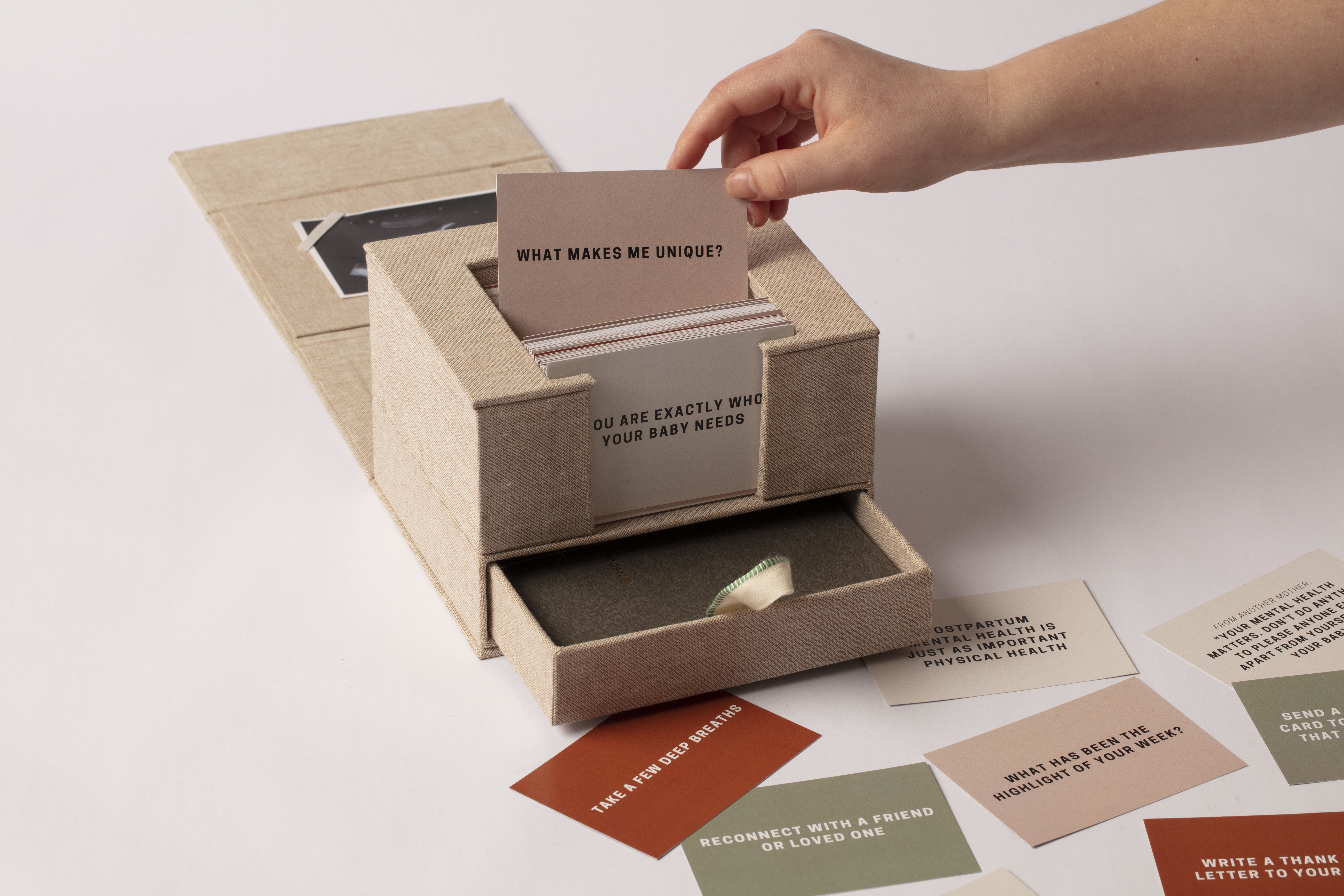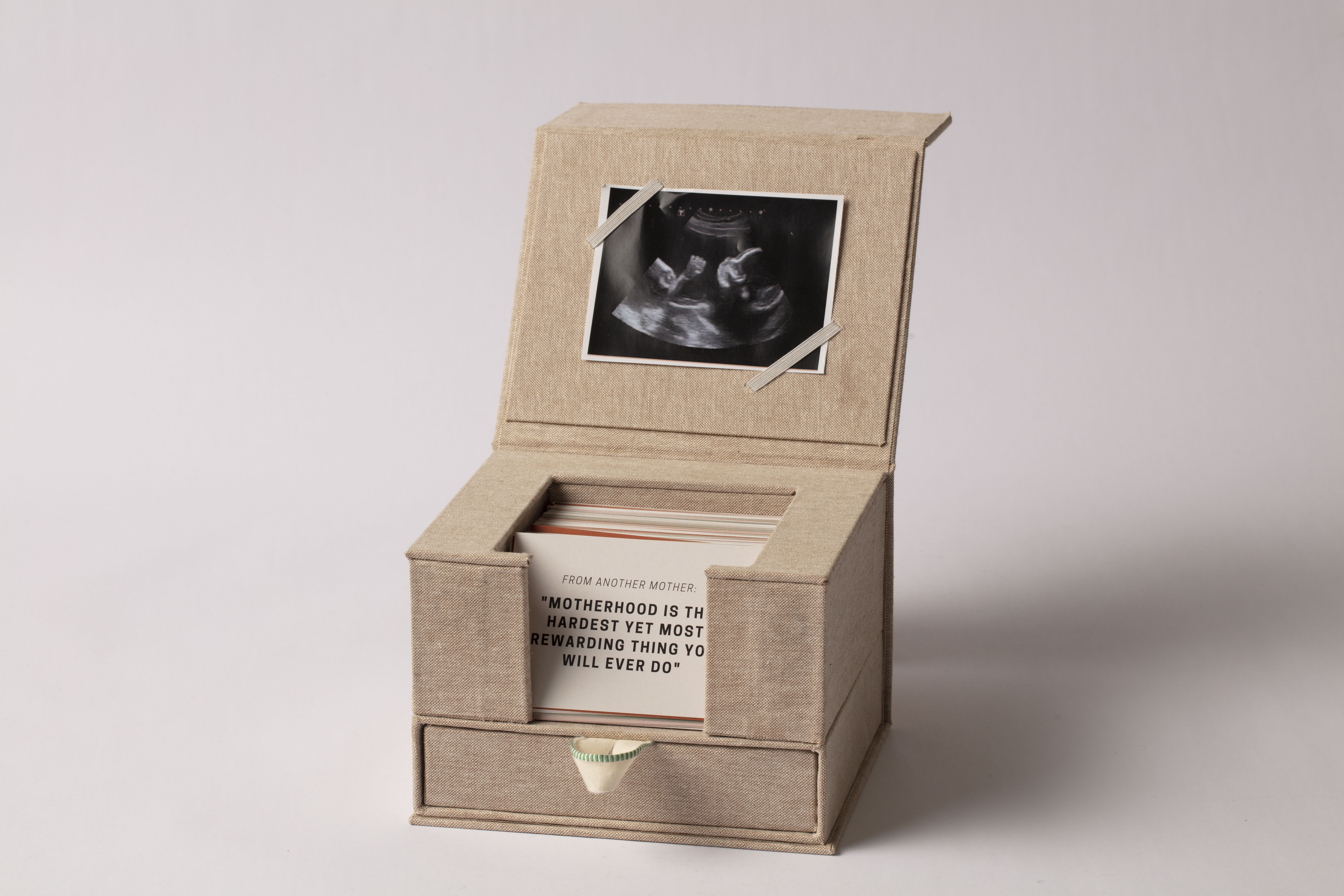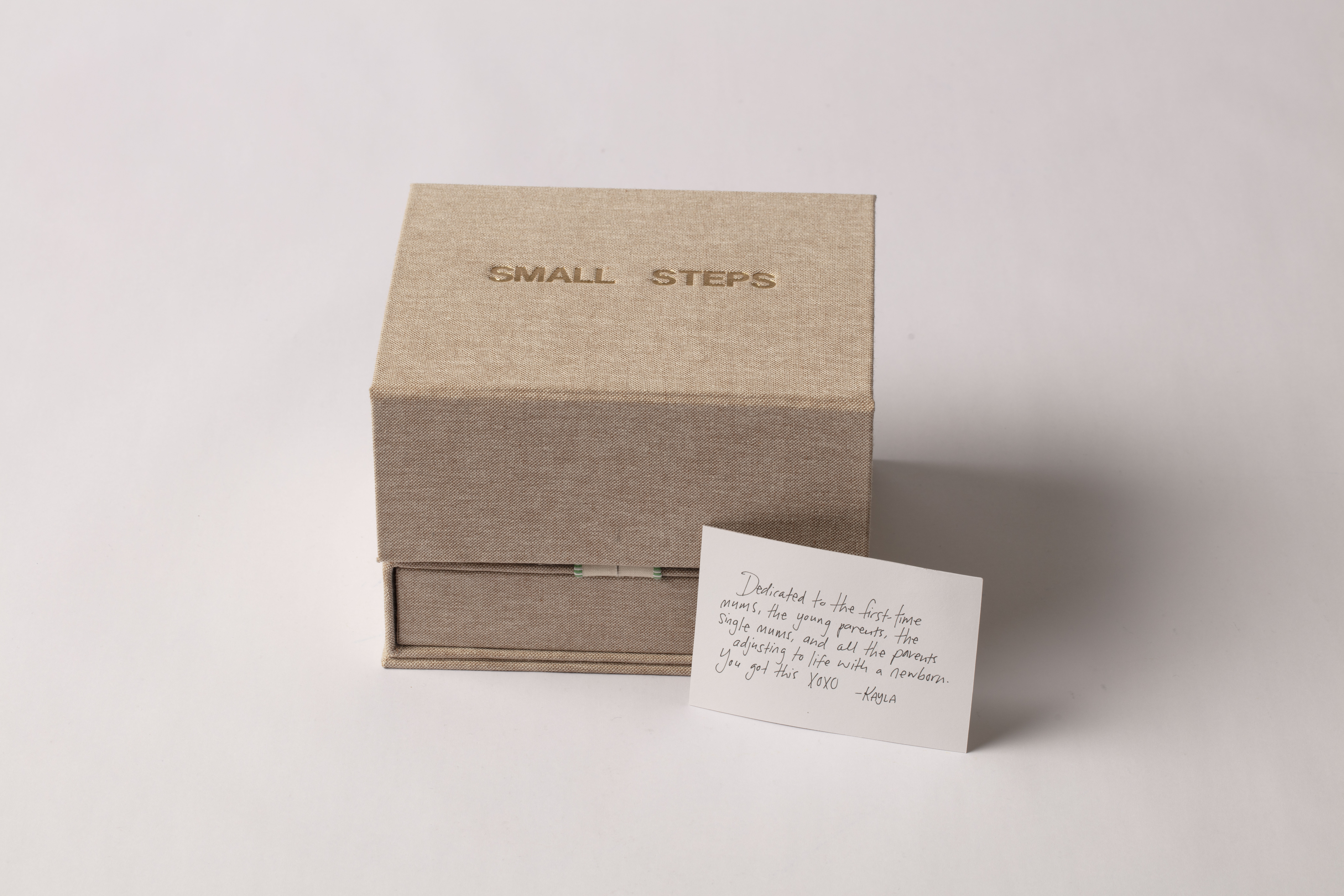

Kayla Newman
Small Steps
Perinatal Mental Health Resource
The aim of 'Small Steps' is to prompt and challenge new parents to practice better self-care so they can be at their best for their baby.
Becoming a parent is one of the biggest transitions a person goes through. Their lives are turned upside and suddenly they are not the most important person anymore. I see new parents struggling and I think it is something we don't talk about enough. The aim of 'Small Steps' is to prompt and challenge new parents to practice better self-care so they can be at their best for their baby. A mindful, grounding, reflective toolkit of mental health resources targeted towards new parents, particularly mothers. Perinatal mental health and well-being resources are needed to fill the cups of new parents so that it overflows into their tamariki (children).
There are 150 unique card designs. The cards are delegated into 4 categories.
Dusty Pink: Reflective questions that encourage mindfulness and a positive outlook.
Beige: Affirmations and words of wisdom from real mum's in New Zealand.
Green: Social prompts that encourage connection and community
Rust orange: Individual tasks and challenges that prompt the user to practice mindfulness or a small act of self-care
Small Steps kit includes a drawer for a journal to note answers to prompts.
In a time that is expected to be joyous, the 'baby blues' and 'mum-guilt kick in. They are sleep-deprived, healing, and overwhelmed with anxiety and negative self-talk. This is due to hormonal changes, lack of education, and social stigma. There is immense societal pressure on new parents, particularly mothers, to be good parents and hide their struggles. Some report feeling their needs are often neglected during critical weeks post-partum, as they adjust to motherhood. There is not a lot of support for mothers postpartum compared to the care they receive during pregnancy. When the baby finally arrives, the parents are thrown into the deep end. Unprepared, exhausted, stressed, irritable, and pushed to their limits. This reflects how they care for themselves, and consequently how they care for their child. This is why additional support is needed.




